Related Research Articles

Nicolas Jack Roeg was an English film director and cinematographer, best known for directing Performance (1970), Walkabout (1971), Don't Look Now (1973), The Man Who Fell to Earth (1976), Bad Timing (1980) and The Witches (1990).

Sir Alan William Parker was an English film director, screenwriter and producer. His early career, beginning in his late teens, was spent as a copywriter and director of television advertisements. After about ten years of filming adverts, many of which won awards for creativity, he began screenwriting and directing films.

David Terence Puttnam, Baron Puttnam, CBE, HonFRSA, HonFRPS, MRIA, is a British-Irish film producer, educator, environmentalist and former member of the House of Lords. His productions include Chariots of Fire, which won the Academy Award for Best Picture, The Mission, The Killing Fields, Local Hero, Midnight Express and Memphis Belle. In 1982, he received the BAFTA for Outstanding British Contribution to Cinema, and in 2006 he was awarded the BAFTA Fellowship for lifetime achievement from the British Academy of Film and Television Arts.
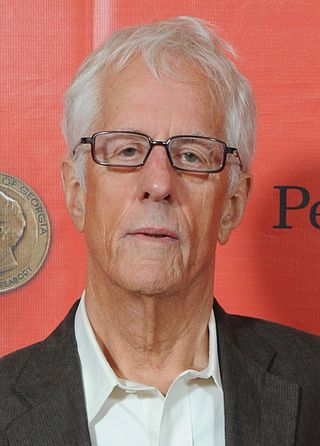
Michael David Apted was an English television and film director and producer.

Carnal Knowledge is a 1971 American comedy-drama film directed by Mike Nichols and written by Jules Feiffer. It stars Jack Nicholson, Candice Bergen, Art Garfunkel, and Ann-Margret, with Rita Moreno and Cynthia O'Neal.

Kenneth Peacock Tynan was an English theatre critic and writer. Initially making his mark as a critic at The Observer, he praised John Osborne's Look Back in Anger (1956) and encouraged the emerging wave of British theatrical talent.

Performance is a 1970 British crime drama film directed by Donald Cammell and Nicolas Roeg, written by Cammell and filmed by Roeg. The film stars James Fox as a violent and ambitious London gangster who, after killing an old friend, goes into hiding at the home of a reclusive rock star.
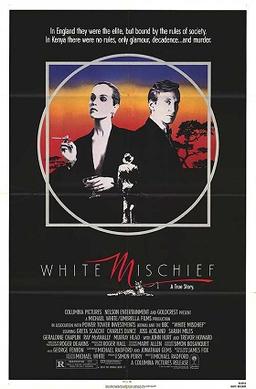
White Mischief is a 1987 British drama film starring Greta Scacchi, Charles Dance and Joss Ackland. It was directed by Michael Radford. The film was based upon the non-fiction book White Mischief: The Murder of Lord Erroll (1982), by James Fox, which originated from a newspaper article published in 1969.

And Then There Were None is a 1974 mystery film and an adaptation of Agatha Christie's best-selling 1939 mystery novel of the same name. The film was directed by Peter Collinson and produced by Harry Alan Towers. This was the second of three versions of Christie's novel to be adapted to the screen by producer Harry Alan Towers. Two film adaptations were previously released. An American made-for-television version was broadcast in 1959. Towers produced a third version in 1989.
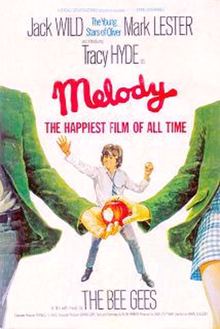
Melody is a 1971 British children's romantic comedy-drama film directed by Waris Hussein, centered on the theme of puppy love. The film stars Jack Wild, Mark Lester, and Tracy Hyde.

Lisztomania is a 1975 British surreal biographical musical comedy film written and directed by Ken Russell about the 19th-century composer Franz Liszt. The screenplay is derived, in part, from the book Nélida by Marie d'Agoult (1848), about her affair with Liszt.
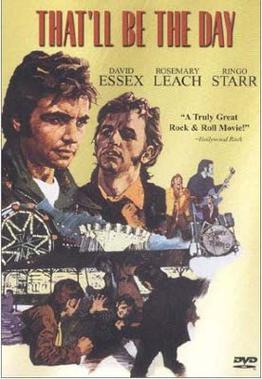
That'll Be the Day is a 1973 British coming of age drama film directed by Claude Whatham, written by Ray Connolly, and starring David Essex, Rosemary Leach and Ringo Starr. Set primarily in the late 1950s and early 1960s, it tells the story of Jim MacLaine (Essex), a British teenager raised by his single mother (Leach). Jim rejects society's conventions and pursues a hedonistic and sexually loose lifestyle, harming others and damaging his close relationships. The cast also featured several prominent musicians who lived through the era portrayed, including Starr, Billy Fury, Keith Moon and John Hawken. The film's success led to a sequel, Stardust, that followed the life of Jim MacLaine through the 1960s and 1970s.

Stardust is a 1974 British musical drama film directed by Michael Apted and starring David Essex, Adam Faith, and Larry Hagman. It is the sequel to the 1973 film That'll Be the Day, which introduced the characters of Jim MacLaine and his street-smart friend Mike Menary. It chronicles Jim's rise and fall as an international rock star during the 1960s and early 1970s, with Mike as his personal manager. It features a number of pop/rock performers, including Essex, Faith, Keith Moon, Marty Wilde, Dave Edmunds, Paul Nicholas and Edd Byrnes.

The 10th Victim is a 1965 science fiction film directed and co-written by Elio Petri, starring Marcello Mastroianni, Ursula Andress, Elsa Martinelli, and Salvo Randone. An international co-production between Italy and France, it is based on Robert Sheckley's 1953 short story "Seventh Victim".
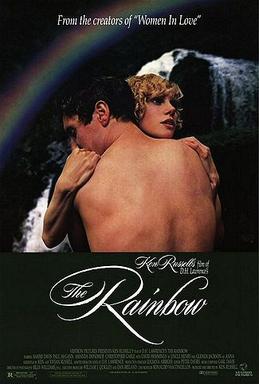
The Rainbow is a 1989 British drama film co-written and directed by Ken Russell and adapted from the D. H. Lawrence novel The Rainbow (1915). Sammi Davis stars as Ursula, a sheltered young pupil, then schoolteacher, who is taken under the wing by the more sophisticated Winifred.

The Magic Bow is a 1946 British musical film based on the life and loves of the Italian violinist and composer Niccolò Paganini. It was directed by Bernard Knowles. The film was entered into the 1946 Cannes Film Festival.

Oh! Calcutta! is an avant-garde, risqué theatrical revue created by British drama critic Kenneth Tynan. The show, consisting of sketches on sex-related topics, debuted Off-Broadway in 1969 and then in the West End in 1970. It ran in London for over 3,900 performances, and in New York initially for 1,314. Revivals enjoyed even longer runs, including a 1976 Broadway revival that ran for 5,959 performances, making the show the longest-running revue in Broadway history, the second longest-running revival, and the eighth longest-running Broadway show ever.
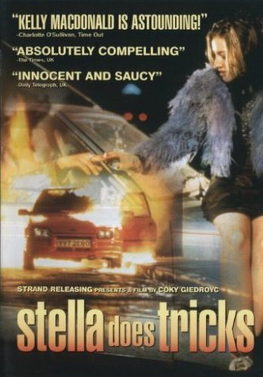
Stella Does Tricks is a 1996 British drama film about a young Glaswegian girl, played by Kelly Macdonald, working as a prostitute in London.
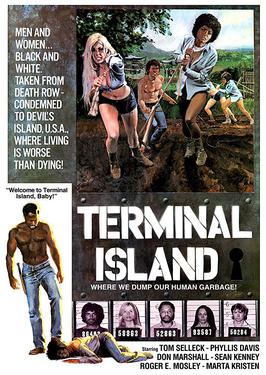
Terminal Island, released theatrically in the UK as Knuckle Men, is a 1973 American action–drama thriller film directed by Stephanie Rothman. It features early screen performances by Tom Selleck and Roger E. Mosley. Although an exploitation film, it has been treated with much serious discussion by critics and academics over the years. It is regarded as a cult film.
"The End of Arthur's Marriage" is a television satirical musical drama that was an episode in The Wednesday Play series first broadcast on 17 November 1965. It was an early work of director Ken Loach, and the script was written by poet Christopher Logue. It is unusual in Loach's catalogue for the surrealism, and the director later said that he believed himself to have been "the wrong man for the job". Main actor Ken Jones had previously worked with Loach on Wear a Very Big Hat and 3 Clear Sundays and later featured in the controversial 1969 play The Big Flame.
References
- 1 2 3 4 "The Making of Trick Or Treat?" The Sunday Times Magazine, September 1976, at Rayconnolly.co
- ↑ Trick or Treat at BFI Screenonline.
- ↑ "Bianca Jagger and the Film that Never was". Sunday Times. London. 5 September 1976. p. 43[S]+ – via The Sunday Times Digital Archive.
- 1 2 Krier, Beth Ann. (October 11, 1978). "Unraveling a Christie Mystery". Los Angeles Times. p. f1.
- ↑ "Date set for police hearing". The Guardian. London (UK). September 16, 1977. p. 2.
- ↑ Roberts, Michael (29 February 1976). "Look! News in Fashion". Sunday Times. London. p. 43 – via The Sunday Times Digital Archive.
- ↑ "Interview with Sandy Lieberson", 1970s Project 6 March 2008 Archived 27 May 2014 at the Wayback Machine accessed 26 May 2014
- ↑ Mann, Roderick. (March 30, 1978). "It's Goodby Glitter, Hello Work". Los Angeles Times. p. f14.